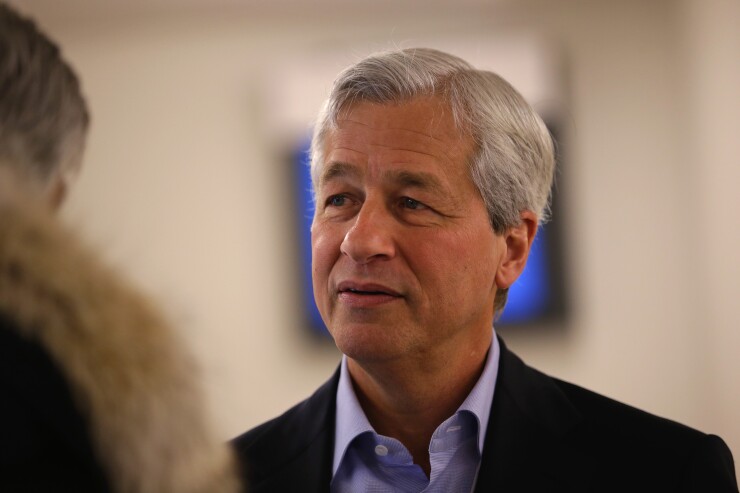Want unlimited access to top ideas and insights?
The information you need to start your day, from PaymentsSource and around the Web:
Bitcoin? What bitcoin? JPMorgan Chase chairman and CEO Jamie Dimon this week told investors he's no longer going to discuss bitcoin, following his calling the virtual currency a "fraud" and comparable to the Dutch tulip bubble during another investor event about a month ago. His remarks caused a fevered response from

Breaches galore: Hyatt and Equifax are suffering breach reruns. Hotels are particularly prone to
Faster cryptocurrency:
Strong pulse: The financial technology market had a strong second quarter in 2017, with total investment of $8.4 billion over 293 deals, or double the prior quarter, according to
From the Web
Reuters | Thu Oct 12, 2017 - The City of London called on Thursday for a more joined-up approach to nurturing financial technology firms in a fast-growing sector that now faces threats from Brexit. “Fintech” develops and offers personalised financial services like payments, loans and insurance via smartphones or the Internet, providing consumers with alternatives to high street banks. The City, which runs the “Square Mile” financial district of London, published a report on UK fintech on Thursday commissioned from consultants KPMG. It said that the fintech sector contributed 6.6 billion pounds to the British economy and employed 60,000 people in 2016, making it a leading global hub. Its main recommendation is for the government to set up a fintech “sector deal” or single policy vision to coordinate standards, support hiring of staff from outside Britain, and improve access to markets.
Yahoo! Finance | Fri Oct 13, 2017 - They say that cash is king, but newer and more convenient payment methods are gunning for the crown. These days, more and more countries are adopting cashless payments, which includes credit card purchases, contactless payments, mobile banking apps and digital options like Apple Pay. To see which countries were adopting cashless the quickest, Forex, a global travel site, conducted a study comparing 20 of the world’s largest economies. In the report, Canada was singled out as the country most embracing cashless technology, which could be attributed to its population changing attitudes that began several years ago. A recent survey in May found that 50% of Canadians are ready to get rid of banknotes and coins. While a 2013 MasterCard survey found 90% of Canadian payments were made through noncash methods. While Canada took the top spot on this list, Sweden wasn’t far behind. The UK rounded out the top three, where the use of contactless payments is growing fast. After France, the United States ranked No. 5 on the list of countries adopting cashless payments.
Reuters | Fri Oct 13, 2017 - U.S. banking regulators must accelerate efforts to address the risks posed by fintech companies to the banking sector which could be “eviscerated” by these innovative new players, St. Louis Fed President James Bullard said on Thursday. Growing competition from fintech players has become the “number one issue” for large financial firms and regulators are “fighting the last war” by focusing on tweaks to post-crisis financial rules, Bullard told Reuters in an interview. “We need to speed up our consideration of the fintech issues and think harder about what is the regulatory environment that is going to be appropriate. I think we have been complacent so far,” Bullard said. “That is the battleground for the next ten years. It is not the same as the battleground for the previous ten years.”
More from PaymentsSource
Same-day ACH debits rolled out last month, a year after same-day credits, cutting processing time for these payments from a couple of days to a few hours — but for many emerging use cases, that’s not fast enough. And debit is filling the void.
Macy's is not alone, as more companies find success after upgrading loyalty programs, writes Tom Caporaso, CEO of Clarus Commerce.
Mike Kennedy is OFX's new president for North America, providing more local digital payment experience for the Australian-based international transfer company.
Airport security is coming to the sports stadium through a program initiated by Idemia, formerly known as OT-Morpho.
The EMV liability shift for gas pumps was postponed to 2020 last year, but cobranded fleet cards carrying the Visa or Mastercard logos still face the same counterfeit card fraud risks as any other payment card when paying for fuel away from the pump, such as at a truck stop convenience store's cash register.





